Fáilte ar ais! Welcome back!
This quote from the science fiction writer Ursula K Le Guin keeps crossing my desk lately:
“Hard times are coming, when we’ll be wanting the voices of writers who can see alternatives to how we live now, can see through our fear-stricken society and its obsessive technologies to other ways of being, and even imagine real grounds for hope.” —Ursula K Le Guin
This is what I was longing for, so started The Gaelic Effect. My goal is to shine a light—even if dim and faint at times—from another time, to other possibilities. Here, it’s not science fiction—it’s linguistic and cultural archeology: remembering (and re-kindling) how we humans actually lived and related together.
This week I visited the “coffin ship,” the Jeanie Johnston. Seeing first hand how so many traveled across the Atlantic during the Great Hunger (an Gorta Mór), I experienced a kind of companionship with past generations. They survived treacherous times. Surely we can too. Thank you for being here and helping to carry that light with me.
And now for this week’s essay…about grá (love). Yes, inspired by Lá Fhéile Vailintín (Valentine’s Day). But this is not the usual love note…it’s about grounding love in our bodies.
Got that groovy feeling? Or maybe not…
One of the most challenging and insightful points Marshall Rosenberg shared is that “love” is not a feeling. We all have a need for love, with other related needs: intimacy, warmth, affection, tenderness, joy, touch, aliveness. Yet when anyone used “love” in relation to another person, Marshall would ask, “How do you actually feel about this person, right now?” Underneath that faux-feeling “love” were actual feelings: “warm,” “tender,” “relaxed,” “energized” or “openhearted.” These feelings are not just conceptual; they live in our bodies, in physical sensations. As such, they are connecting and grounding; they take people out of their heads, into the present moment. “I love you” in English implies (through the simple present tense) a permanent and static state that, ultimately, is un-doable. Can you love someone all the time—and for ever? When “love” is used this way, demands and expectations easily multiply: “Of course I love you!” Yet how do we actually feel, in this moment? To share that involves real intimacy and self-knowledge—and vulnerbility, bringing us back into our bodies and a place of tenderness.
The physicality of love
Galar an grà nach leigheasann luibbeanna. Nil lia ná leigheas an an gira. (No known herb cures love. There is no physician or cure for love.) —Seanfhocal (proverbs)
As an emotion, we now know that “love” is indeed a very physical experience, with chemicals surging through our veins:
“Phenylethylamine is the hormone-like substance produced at the early stages of attraction that provokes the dizzy sensation some people feel when they're falling in love. It triggers the release of norepinephrine, which helps the body respond to stress, and dopamine, "the joy and reward chemical," […] It's what makes you feel like you are on a cloud, flying through the air." heart.org
More:
“Falling in love requires chemistry—literally. Throughout the process of falling for someone, your brain releases various hormones and chemicals that cause you to feel everything from initial attraction to joy to contentment. The reason a new relationship can feel so all-encompassing is because, well, it is.” Calm.com
This concoction of chemicals is why feeling “in love” can be hard to sustain. These chemicals surge in new relationships and then run dry—although hugging, holding hands, sex and even singing with others can also release oxytocin.
I sing the body electric,
The armies of those I love engirth me and I engirth them,
They will not let me off till I go with them, respond to them,
And discorrupt them, and charge them full with the charge of the soul. — Walt Whitman
Love takes action
If you look up “I love you” in Google translate, you’ll get a direct, literal translation in Irish: Is breá liom tú. Grammatically, this is correct. You can also say, is breá liom uachtar reoite, “I love ice cream.” Or, is breá liom mo rothar (I love my bicycle). Yet it’s not idiomatic to say, “I love you.” You could say, using love as a noun, “I fell in love” (thit mé i ngrá) or “I am in love” (tá mé i ngrá). In Munster you can say, Is tú/tusa mo ghrá or, in Connacht, Mo ghrá thú, both meaning, “you are my love.” (I personally find this matter-of-fact statement very endearing.) You can also say, tá grá agam ort (“I have love at me for/on you.” If you recall, there is no verb “to have” in Irish; everything is temporarily “at” you; again, this is very consistent with Rosenberg’s thinking about keeping our feelings in the present moment. The most static expression of affection in Irish is grá go deo, “love for ever.” Yet, again, you would not say, “I love you.”
Last year someone asked on Reddit, “What is the most common way to say ‘I love you’ in Irish? (parent to child).” Someone responded: “You don't really say the phrase, ‘I love you,’ as Gaeilge. You can, it's just much nicer, and more common, to say many of the other phrases.” To this, another added point blank: “We don’t do that here.” Another added, “there is no way to say [this] ás Gaeilge because the idea [of] saying this to your kid or hearing it from a parent is literally horrifying to every Irish person ever.” The way you say “I love you” to a child in Hiberno-English is: “If you fall out of that tree and break your leg, I'll kill you.” (See more at Reddit.) Messing (humor) aside, it seems “love” in Ireland speaks in actions, not words.
Embodying love
Consistent with this, the most compelling and idiomatic ways to express love in Irish are expressions grounded in the body, involving the heart. You can say, grá mo chroí (“love of my heart”) or Is grá mo chroí thú (“you are the love of my heart”). Even more poetic (and intense), in the Ulster dialect of Irish you can say, tá mo chroí istigh ionat (my heart is inside or within you). Or is tú grá geal mo chroí (“you are the bright or shining love of my heart”). You can also say, mo chuisle (“my pulse”) or cuisle mo chroí (“pulse of my heart”) or, is tú mo chuisle (“you are my pulse”). Why would anyone say “I love you” when you can use expressions like these?
In What’s Love Got to Do with It? I wrote about how the etymology of “husband” and “wife” in English goes back to property ownership; this is remarkably different from Irish, making use of céile, meaning “together,” as in “man-together” (husband) or “woman-together” (wife). What is even more endearing is the expression, a stór, used when addressing someone, or mo stór (my darling) when referring to them. Literally, while translated as “darling” into English, stór means “treasure.” You can make this even sweeter with the diminutive, -ín, which makes a word in Irish take on the meaning of being smaller and/or expressing affection. Is tú mo stórín means then, “you are my little treasure,” or “you are my sweet treasure.” Similarly, you can say mo thaisce, another way of saying “my treasure.” There is something very charming about the person of your affection being the wealth of your life rather than the dowry (through getting married), as in English. On this note, if you trace the etymology of “love” in English all the way back to Sanskrit, lobha, it means “desire or greed.” In Irish, the root word of “love” is “love” itself, with secondary meanings of “affection, fondness, and charity.” (Wiki) This leads me to wonder: How would we treat those we feel affection for if we truly saw them as “treasures”?
Mo chuisle (“my pulse”) short for “pulse of my heart,” became immortalized by the great John McCormack in “Macushla” (an Anglicized phonetic spelling). You can hear him sing it here:
If love not being a feeling seems cold to you, here’s a bit of romance: a lovelock bridge in Kilkenny—which, unlike the Ha’Penny bridge in Dublin (where all the locks were removed for structural reasons) still shows its heart(s):


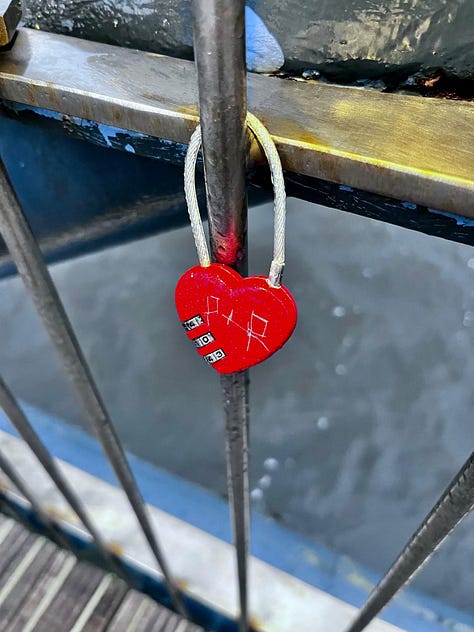
More oxytocin
I hope today’s Gaelic Effect inspires you to connect more deeply with your feelings, whatever they may be, and support you in being grounded in your body (the pulse of your heart). If I suceeded then I am, in my opinion, a spéirbhean, a beautiful or great woman. This is another term of endearment in Irish. It literally means, “skywoman.” A native Irish speaker once called me “ardbhean” or a “high woman” (similiar to ard-rí, “high king”) because of my passion for Irish. But that’s easy. Is aoibheann liom an Ghaeilge (I adore Irish; I delight in it). Whenever I speak it, I feel intrinsically happy. I think it releases oxytocin.
Lá Fhéile Vailintín sona duit (happy St. Valentine’s Day to you) and grá mór ó Bhaile Átha Cliath (much love from Dublin),
Dian
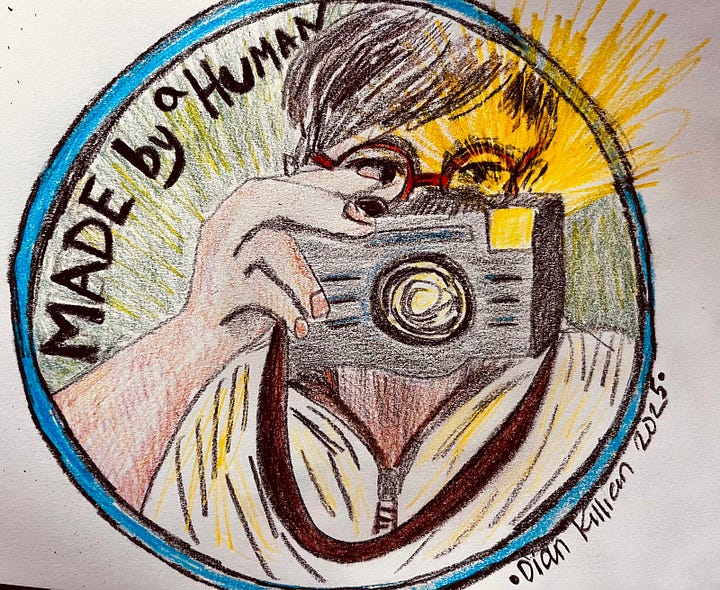





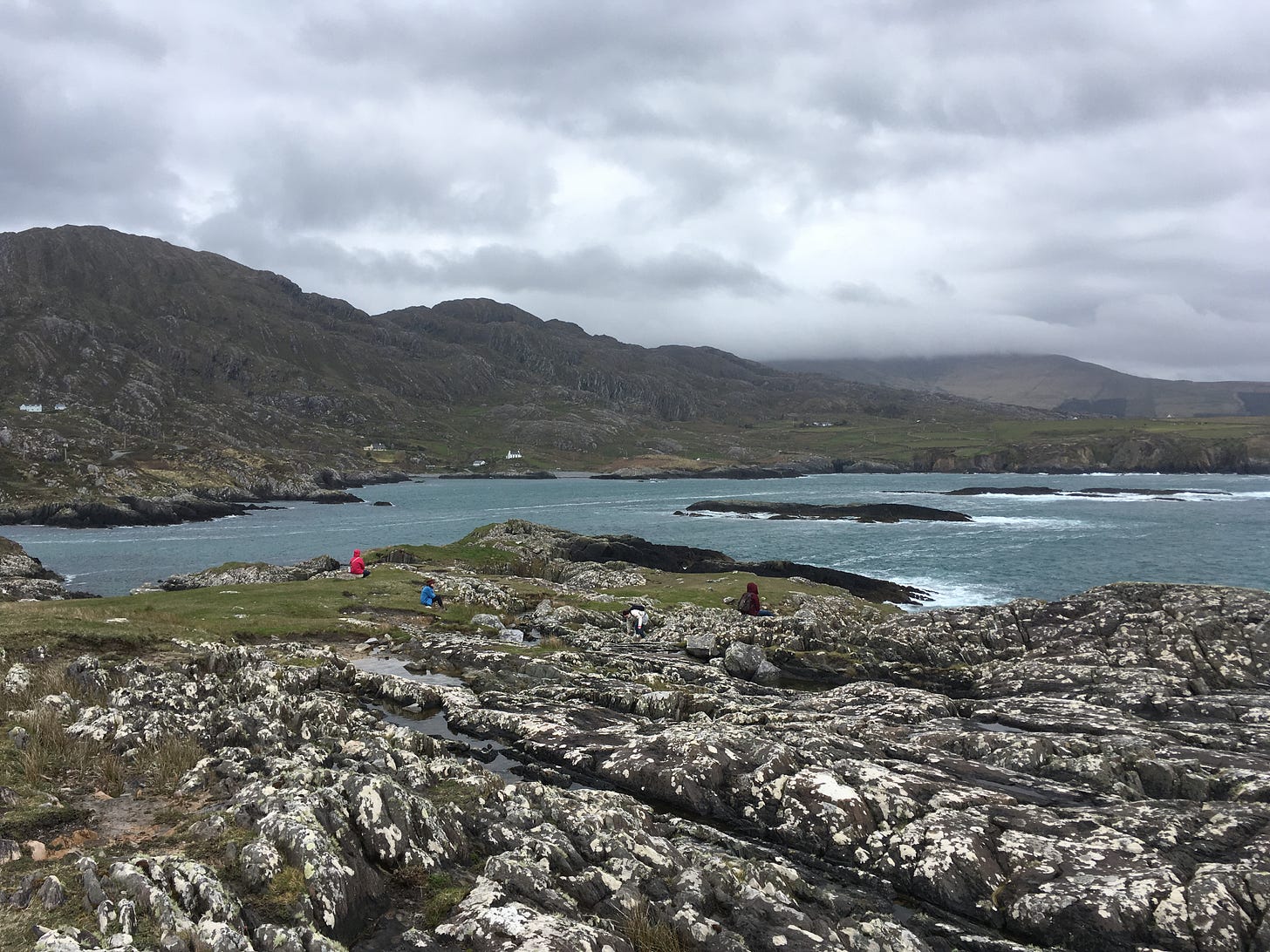
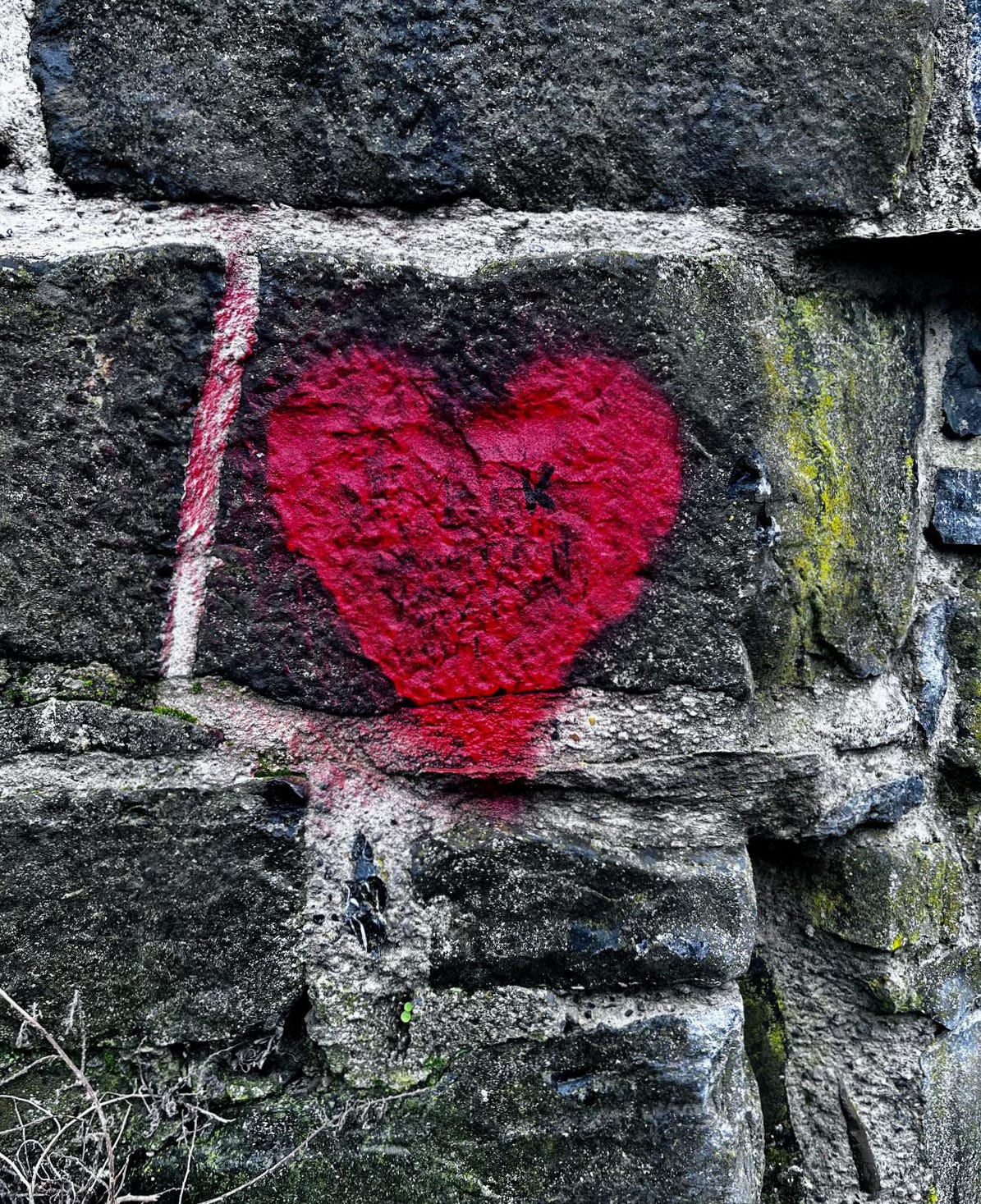
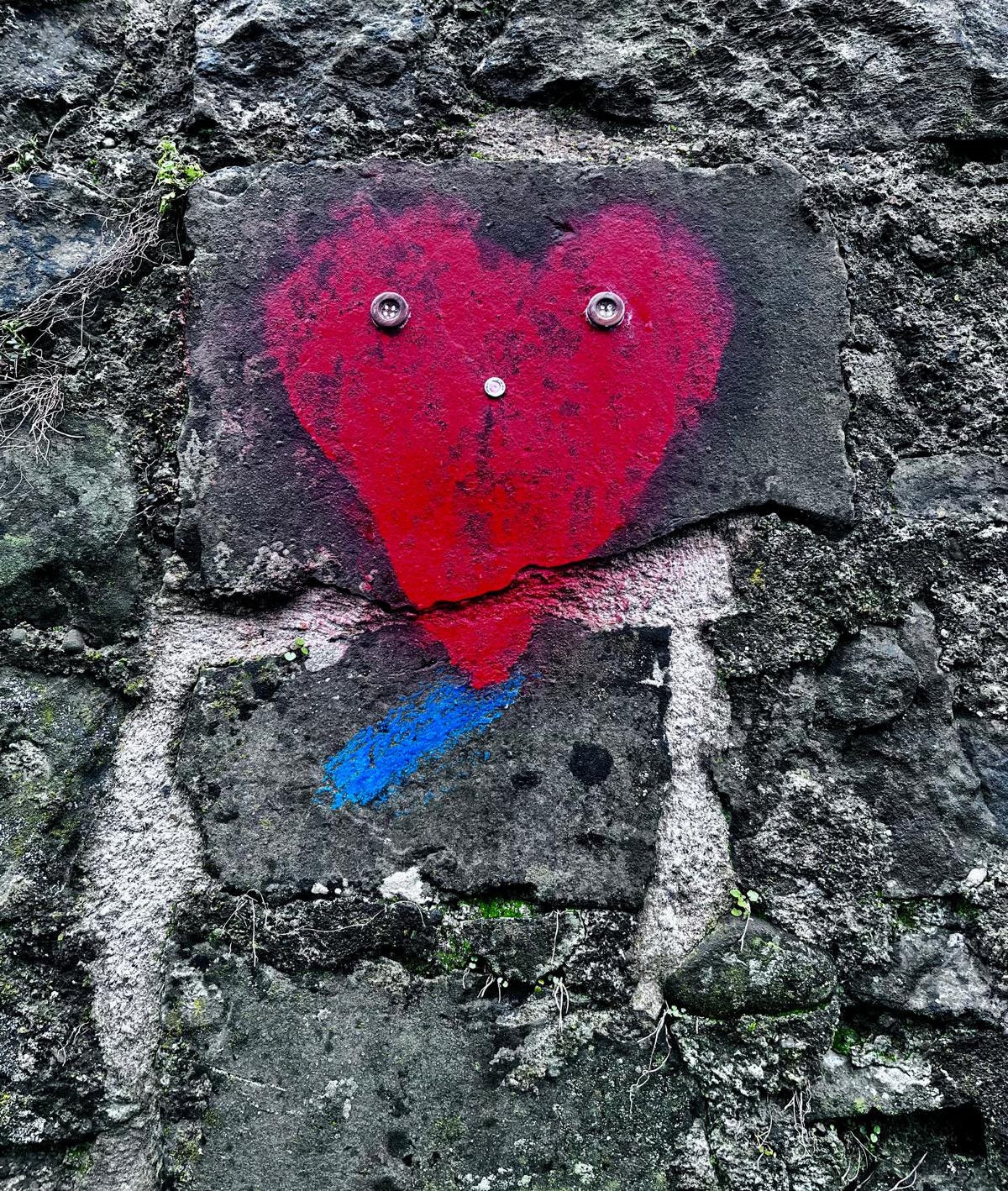

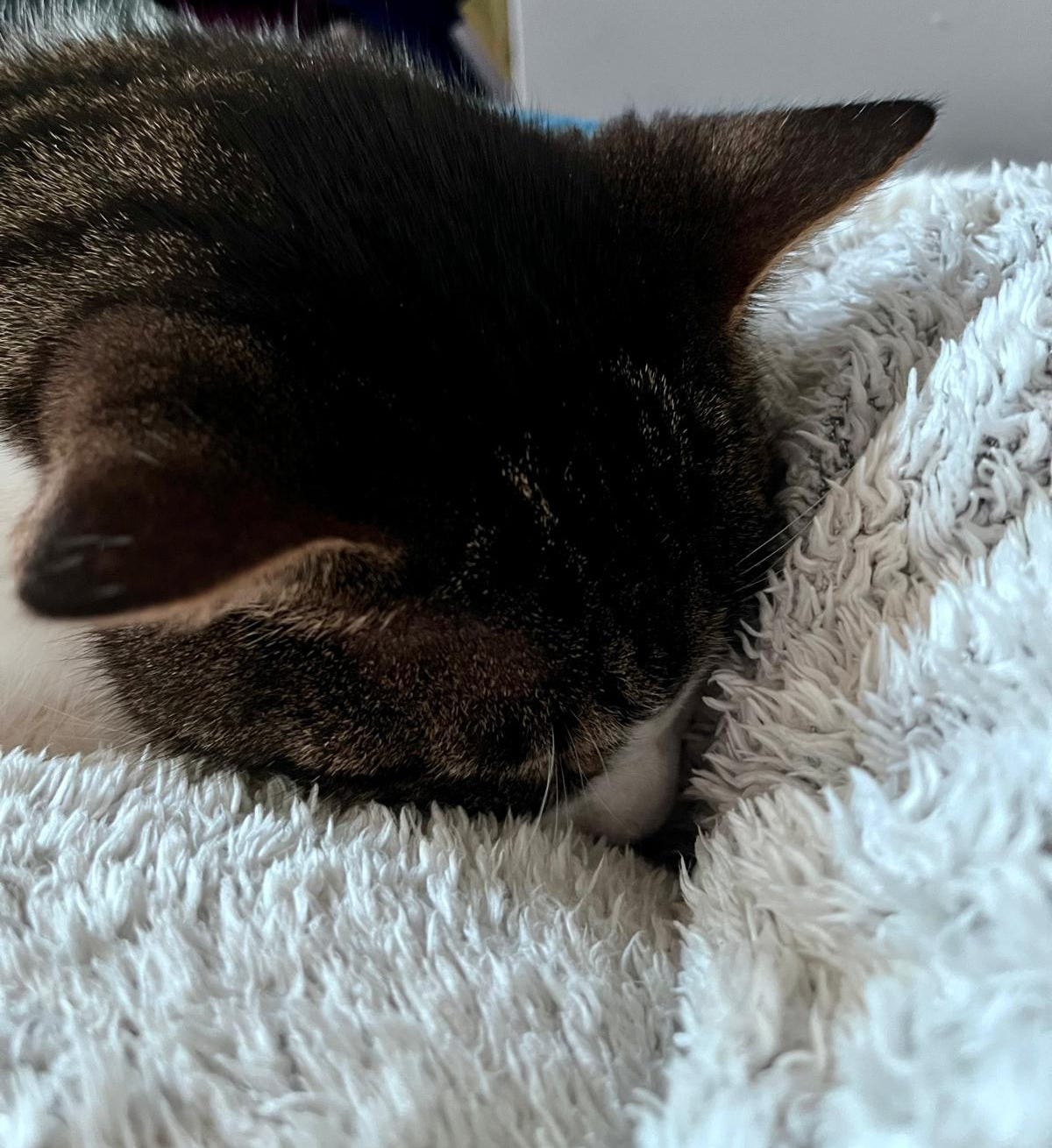
Dian, I love all of this. Is it possible for you to put in the pronunciations of the Irish terms so that we can actually hear them so we don’t go around sounding like idiots. Ahaha.
Hope…and inspiration💕